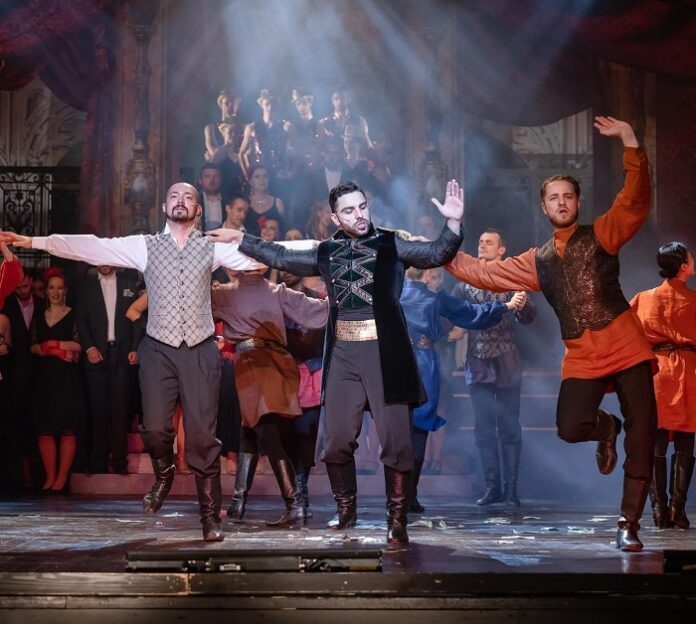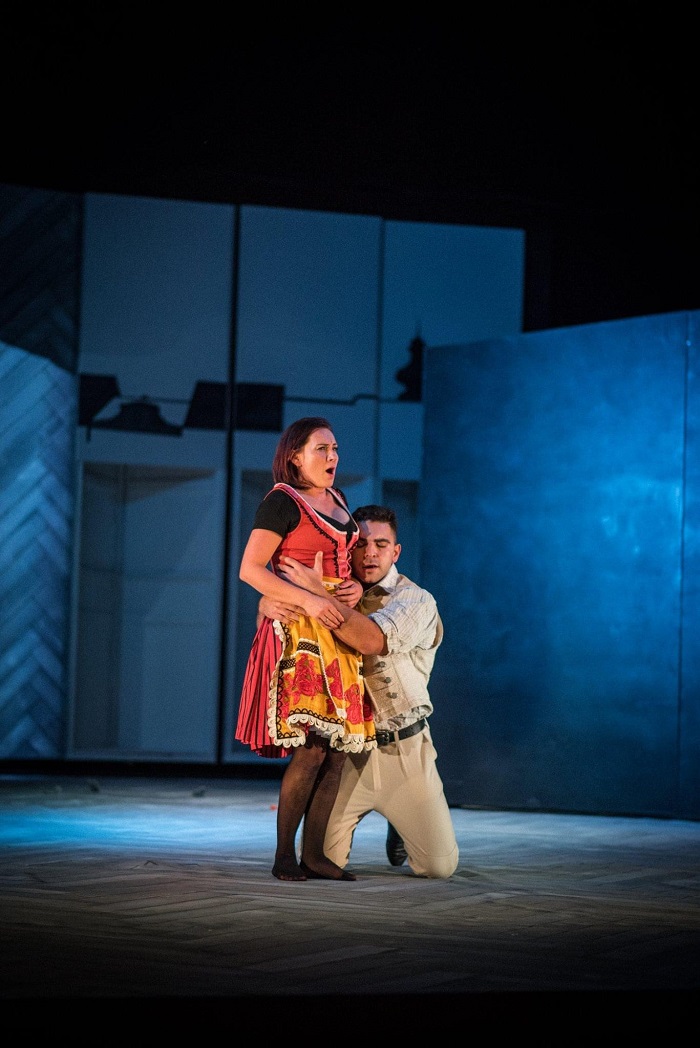On the one hand, an opera singer and, on the other hand, a doctor. In two different professions, Amir Khan was able to find parallels and receive an education, leading to a successful career.
You have a foreign name and surname. Where do you come from?
My name comes from the Arabic language and means a prince. My mother is Slovak from Čadca, and my father comes from Pakistan. Both are doctors. My father was a brilliant student in his home country, received a scholarship, and went to study medicine in Slovakia. My parents had met at the Družba University dorm, where I lived during my studies thirty years later. I was born in Slovakia, so although I have an exotic appearance and name, I am a native of Čadca, Kysuce.
When did you become interested in medicine?
I attended The Secondary Grammar School of Jozef Miloslav Hurban in Čadca. I knew from an early age that I wanted to be a doctor. When I was 7-8 years old, I found anatomy textbooks and atlases of my parents at home. I was so fascinated that I memorized the sequence of digestive tract organs in Latin. My “non-mathematical” genes were added to this at grammar school – mathematics is our family terror – and a clear medical path was born.
Why did you decide to study medicine and opera singing simultaneously?
Medicine has been my natural vocation since childhood. I got to study art, opera, and opera singing because of an interesting coincidence. When I was seventeen, I accidentally saw a video with Pavarotti on YouTube. After listening, my jaw dropped. That’s when I decided I wanted to study opera. With a range of about four tones, I started preparing for entrance exams – family and friends begging me to stop singing because I just can’t. I am impossible to listen to, and if I don’t stop, the neighbors will probably call the police for disturbing them. But I did not let it happen because the enchantment with the opera was too strong. No one in the family sang at all. It was a shock to everyone. Later, I successfully passed the entrance exams – for medicine and opera singing.
How did you manage to study two completely different majors?
This crazy supercombination was quite time and energy-consuming. The full-time study in both schools took six years. I graduated from pediatrics symbolically on Children’s Day on June 1. Two days later, I defended my thesis and earned an absolutorium. I was so exhausted that I didn’t even know my name anymore. And how did I manage to study two completely different majors simultaneously? Perhaps I could connect the cerebral hemispheres and move very quickly from one to the other – from medicine demanding a lot of information to art and opera, where imagination and sensitivity dominated. And probably with the universe’s help, all the blessings, and, last but not least, the kind people I met along the way.
What did you focus on after graduation?
An offer for a solo role followed in the Slovak National Theatre, as well as in the Košice Opera, the State Opera Banská Bystrica, the Nová Scéna Theatre in Prague, and other venues. I’ve toured Europe and even Japan with Mozart’s The Magic Flute. It was a lot. I sang with well-known names such as Dalibor Jenis, Dagmar Pecková, and Slávka Zámečníková, as well as our Slovak treasures such as the Dvorský brothers, the Babjak brothers, or with Maria Porubčinová.
Why did you decide to exchange the career of an opera singer for a medical career?
After fulfilling the artistic ambitions of the opera soloist, I began to miss the medicine I had in my blood, so I returned to it. I started working as an ophthalmologist at a clinic in Bratislava. I got to know aesthetic medicine, which was only a short step away from ophthalmology. I refined my sensitivity for aesthetic performances, especially during corneal surgeries, which moved me further. I started to devote myself to aesthetics and attended the first certified courses, trainings, and congresses. I have been thinking about combining art and medicine throughout my life, and finally, I found the correct answer. Aesthetic medicine is the perfect combination, and I feel like a fish in water.
Where do you currently work, and what do you focus on?
Currently, clients will find me in new premises in Bratislava and Čadca. In my practice, I focus on an increasingly prominent global aesthetic trend. People are searching for treatments that reduce signs of aging through collagen and elastin production via biostimulation. Clients want to look younger and more radiant and improve skin quality. At the same time, they do not wish others to too see they have undergone surgery or therapy so that the onset of the effect is gradual and not abrupt. In my work portfolio, the most common is the application of botulinum toxin – either for aesthetic reasons: to remove/soften wrinkles, or therapeutic: to remove bruxism (teeth grinding), migraines, as well as the application of fillers and biostimulating materials, polynucleotides to the face area, but also to areas such as the neck, décolleté, hands, abdomen or even non-surgical enlargement and modeling of the sitting area also known as non-surgical Butt lift. I always pay attention to each client’s uniqueness and natural beauty and try to support and highlight it so they are still themselves even after the procedure and do not look artificial. Clients have some idea of beauty. I have my own. We communicate this and try to meet somewhere in the middle. It is also essential to communicate what the client can expect from the treatment and to make this expectation realistic. If a person arrives with advanced signs of soft tissue aging, the expectation that they will look thirty years younger after just one treatment is, unfortunately, an illusion. I believe it is crucial to communicate our capabilities accurately, as it respects both the client and the integrity of my work.
What do opera and medicine have in common?
In medicine and in opera, there may be some parallels and overlaps. It is essential to perceive individuality in knowing the principles in both cases, aesthetically and physiologically, to create a tandem with the client/stage partner, to perceive its uniqueness, and to go together towards the determined result/goal. Find inspiration in oneself, see in color and consistently, perceive needs beyond personal space, and be a bit of a psychologist and also “a confessor.”
What do you plan to do in the future?
In the near future, it will properly establish itself on the market and attend world congresses in Prague, Paris, and Monaco. I love education because I believe that this is the only way a doctor can bring their clients/patients high expertise, precision, safety, and the latest knowledge, procedures, and trends from any medical industry. Having a passion for what one does is important, but continuous learning is equally important for someone who wants to be at the top of their field.
Text, photos: Amir Khan















